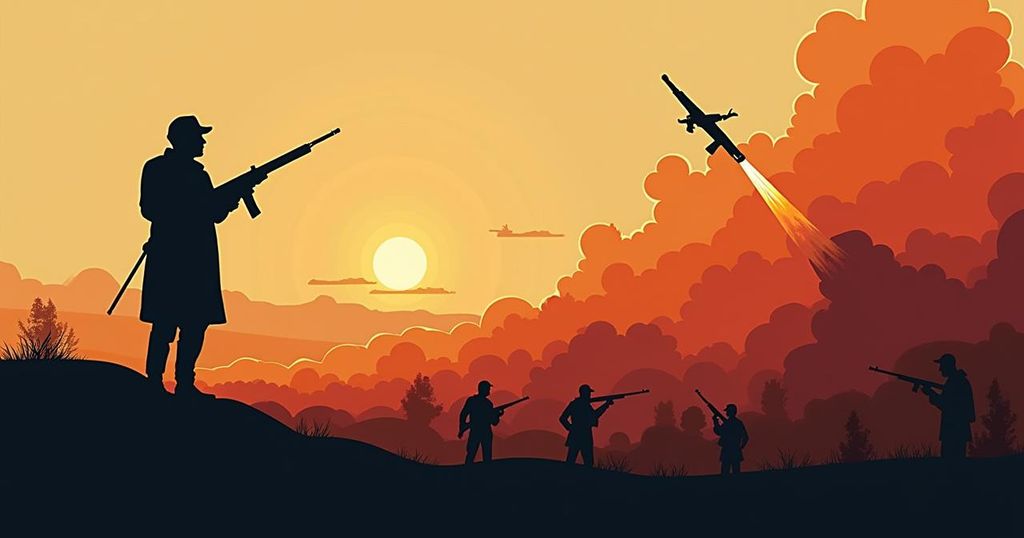Iranian Missile Strikes on Israel: A Critical Crossroad for Regional Politics
The Iranian missile strike against Israel signifies a critical moment in Middle Eastern geopolitics, reflecting Iran’s attempts to regain deterrence after losses to proxies like Hezbollah. The attacks utilized advanced weaponry targeting military installations, prompting Israeli leaders, including Prime Minister Netanyahu, to consider a strong retaliatory response that could impact regional and global economies. With internal political pressures, Netanyahu’s actions may define his legacy, complicating the delicate balance of military engagement and long-term stability in the region.
The recent Iranian missile strikes targeting Israel have significant political ramifications in the Middle East. Over 200 long-range missiles were launched by Iran, with analysts suggesting that the action was a strategic choice due to Iran’s previous losses through proxies like Hezbollah, as well as a perceived necessity to re-establish deterrent capabilities against Israel. Sanam Vakil, a Middle East analyst, noted that Iran’s decision to directly confront Israel was a calculated risk to assert its influence following setbacks with its proxies. This latest attack marked a departure from earlier tactics, utilizing advanced ballistic missiles aimed specifically at crucial military installations rather than civilian targets. Iran’s Foreign Minister, Abbas Araqchi, stated that the strikes were a response to Israel’s continued aggression. In the wake of the attacks, Israeli Prime Minister Benjamin Netanyahu declared the strikes a significant error by Iran, vowing a retaliation that could see them targeting Iran’s oil infrastructure, which might affect global markets. Calls from within Israel have also ramped up for more drastic measures, including operations against Iran’s nuclear facilities, which leaders like former Prime Minister Naftali Bennett view as opportunities to strike a decisive blow against Iran. However, such actions carry the risk of inadvertently accelerating Iran’s nuclear ambitions, as its capabilities are increasingly fortified underground. The political climate within Israel indicates a sharp rise in Netanyahu’s popularity following Israel’s military operations against Hezbollah. Analysts suggest that this newfound support might drive Netanyahu to undertake further aggressive actions against Iran in a bid to solidify his legacy amid pressures and criticisms from past military failures. Experts continue to caution that while the current moment may seem advantageous, Israel’s overreach could lead to repercussions detrimental to its long-term strategic posture. The complexities of Middle Eastern geopolitics suggest that attempts to reshape the regional landscape through military action alone could ultimately backfire.
The geopolitical climate in the Middle East has been further complicated by the interactions between Israel and Iran, particularly the involvement of proxy groups such as Hezbollah and Hamas. The dynamics of power and military capabilities among these actors shape the broader security landscape. Historically, confrontations have been frequent, but direct military engagements have often led to pronounced shifts in alliances and national strategies. Recent developments illustrate a critical juncture for Israel, presenting both opportunities and risks in its ongoing conflict with Iranian influence in the region.
In summary, the Iranian missile strikes on Israel mark a pivotal moment that may reshape regional politics, with both immediate and long-term implications. As Israel grapples with the response to these attacks, the interplay of international relations, domestic politics, and military strategy will deeply influence the stability of the Middle East. Analysts stress caution, highlighting the potential for significant escalation and its attendant ramifications.
Original Source: www.cbc.ca




Post Comment